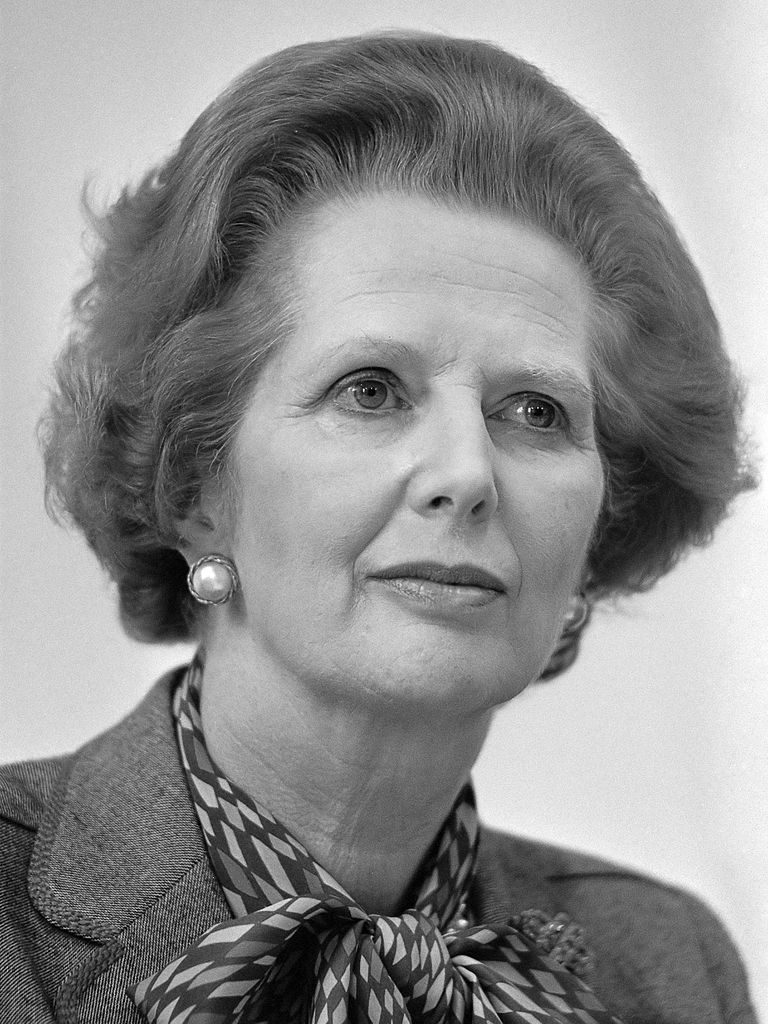
On June 16, 1989, London newspaper The Guardian published a report under the headline "Thatcher 'in plan to force Pretoria deal'".
"South Africa's outlawed African National Congress and other anti-apartheid organisations are nervously preparing for the possibility that international pressure will push them and Pretoria into negotiations later this year.
"...The conviction is meanwhile growing in the anti-apartheid movement that London will try to broker a political settlement with the backing of the US, Moscow, and the Frontline States.
"...Anti-apartheid activists are now assiduously promoting debate on the issue in an attempt to prepare a negotiating position."
The reason why I am so readily able to quote from a newspaper report of almost 24 years ago is that I quoted it shortly thereafter in my dissertation as a political science student at Princeton.
The substance of that report, strenuously denied by the ANC at the time, subsequently proved to be correct. The process that would lead to the Nelson Mandela's release from prison barely seven months later had already begun.
It's the amazing thing about history – what one believes is true at the time later turns out to be idealist naiveté.
The United Kingdom of the 1970s was a place where many of us South Africans, including members of my own family, found refuge. It was also a country in substantial economic decline. Unable to curb a labour movement that led crippling strikes demanding higher and higher pay increases, the prime minister of the time, James Callaghan, did something not dissimilar to what our ruling part has been doing in the face of similar unrest in our own country over the past two years – he denied there was a problem.
This prompted the famous headline in the next day's edition of The Sun "Crisis? What crisis?" The subheading said "Rail, lorry, jobs chaos—and Jim blames Press".
Thatcher came to power in 1979 on the back of an advertising campaign which showed long lines of people in unemployment queues with the headline "Labour isn't working".
Once in office, she proceeded to rip apart the fabric of British society. She increased interest rates, lowered income taxes, and increased indirect taxes. She introduced cash limits on public spending and slashed expenditure on education and housing.
Within a year, her popularity had plunged to 23 percent and many members of her own party tried to persuade her to ease up. A group of 364 leading economists of the day signed a statement saying that she did not know what she was doing.
Thatcher ignored them. She privatised state owned industries, selling them off to the private sector.
She faced off against striking mineworkers, refusing to accede to their demands. On strike for a year with no salary, the workers quietly shuffled back to work. In the meanwhile, Thatcher shut down unprofitable mines for good. Tens of thousands of jobs were lost.
Except it worked.
Freed from wasteful expenditure of big government, the economy rallied growing 23 percent over the next decade. State-run housing was sold off to the tenants allowing thousands of people to become homeowners for the first time.
As a student activist and a young journalist, I loathed Margaret Thatcher along with her political soul mate Ronald Reagan and everything that they stood for… Their support for anti-democratic forces such as Unita in Angola and Renamo in Mozambique and the Contras in Nicaragua; their relentless persecution of our then exiled liberation movements as "terrorists"; Thatcher's war against the trade unions; Reagan's invasion of Grenada… I could go on for a while on this thread.
As a result, their economic policies – which came to be known respectively as "Thatcherism" and "Reaganomics" – were in my mind tainted by the shadow of their support for those evils as well as the apartheid regime.
Now, with the benefit of hindsight, I can't help but chuckle as I read the words of Margaret Thatcher in an interview with Woman's Own magazine in September 1987:
"I think we have gone through a period when too many children and people have been given to understand 'I have a problem, it is the government's job to cope with it!' or 'I have a problem, I will go and get a grant to cope with it!'; 'I am homeless, the government must house me!' and so they are casting their problems on society and who is society?
"There is no such thing! There are individual men and women and there are families, and no government can do anything except through people and people look to themselves first.
"It is our duty to look after ourselves and then also to help look after our neighbour and life is a reciprocal business and people have got the entitlements too much in mind without the obligations."
I chuckle because those views are not different to my own today.
